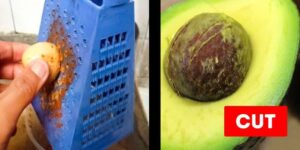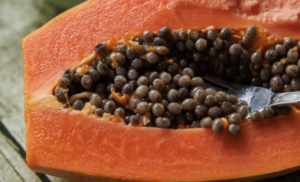1 Tablespoon a Day Burns Belly Fat
When it comes to weight loss, the common advice is often to eat less and exercise more. However, for those with a slow metabolism, this may not always be enough. But what if there was a natural solution that could help you lose more belly fat with minimal effort? In this article, we’ll explore how mitochondrial uncoupling can be a game-changer for those struggling with a sluggish metabolism.
Understanding the Metabolism: Slow vs. Efficient
Many people believe they have a “slow metabolism,” but this isn’t entirely accurate. It’s not that your metabolism is slow; it’s actually highly efficient. Think of it this way: a Hummer is a gas guzzler, while a Hybrid Camry is more fuel-efficient. The Hummer needs more fuel to run, while the Hybrid Camry can travel farther on the same amount of fuel.
In the same way, people with a “slow metabolism” actually have a metabolism that is very efficient at using energy. This means they can go longer without needing fuel, which often makes weight loss more difficult. The key question is: How can we make the body burn more fuel, just like a gas guzzler?
What is Mitochondrial Uncoupling?
The solution to this problem lies in a process called mitochondrial uncoupling. Mitochondria are the powerhouses of our cells, responsible for converting food into energy (ATP). Normally, the mitochondria produce ATP to store energy. However, mitochondrial uncoupling causes them to produce heat instead of ATP, which means energy is “wasted” in the form of heat.
This process essentially increases energy expenditure and helps with weight loss. The good news is there are natural ways to stimulate mitochondrial uncoupling.
Natural Mitochondrial Uncouplers
1. Resveratrol
Resveratrol is a polyphenol found in various foods, including grapes, cranberries, blueberries, dark chocolate, pistachios, and Japanese Knotweed. It has been shown to activate mitochondrial uncoupling, helping the body burn more fat. A tablespoon of resveratrol powder or tea can be a great addition to your diet.
2. Ketones
The ketogenic diet is known for promoting weight loss, and one reason may be the production of ketones. Ketones help improve mitochondrial function and promote fat burning, making them a powerful ally in your weight loss journey.
3. Cold Therapy
Cold immersion or cold showers can trigger mitochondrial uncoupling. When exposed to cold temperatures, the body works hard to maintain its core temperature at 98.6°F. This process generates heat and burns fat in the process. Cold therapy is a simple yet effective method for boosting metabolism.
4. Exercise
Regular physical activity is one of the most effective ways to stimulate mitochondrial uncoupling. Exercise forces the body to use more energy, promoting fat loss and improving mitochondrial function.
5. Fasting
Fasting is another way to promote mitochondrial uncoupling. By not eating for extended periods, your body is forced to use stored fat for energy, helping to burn more calories and increase metabolism.
6. Green Tea
Green tea contains catechins, which have been shown to have a mild mitochondrial uncoupling effect. Drinking green tea regularly can support fat loss and boost metabolism over time.
7. Sauna or Jacuzzi
Exposing your body to heat, such as in a sauna or Jacuzzi, can also stimulate mitochondrial uncoupling. These activities can help you burn fat by increasing your body temperature and energy expenditure.
What Blocks Mitochondrial Uncoupling?
While there are many natural ways to stimulate mitochondrial uncoupling, there are also factors that can inhibit this process:
1. Excess Calories
Overeating, particularly consuming more calories than your body can burn, prevents mitochondrial uncoupling. Whether it’s too many carbs, fats, or sugars, excess calories force your body to store fat instead of burning it.
2. Sedentary Lifestyle
The more sedentary you are, the less likely you are to experience mitochondrial uncoupling. Regular activity is essential to keep your metabolism working efficiently.
3. Aging
As we age, the body’s ability to uncouple mitochondria naturally decreases. However, incorporating the methods mentioned above can help counteract this decline and keep your metabolism working at its best.
4. Environmental Toxins and Heavy Metals
Exposure to heavy metals and environmental toxins can disrupt mitochondrial function and reduce uncoupling efficiency.
5. Certain Medications
Some medications, including statins, beta blockers, metformin, and antibiotics, can impair mitochondrial uncoupling. If you’re taking any of these medications, it may be beneficial to consult with a healthcare professional about ways to support mitochondrial health.
Final Thoughts
If you’re looking for a natural way to boost your metabolism and shed belly fat, mitochondrial uncoupling could be the solution. Incorporating strategies like taking resveratrol, following a ketogenic diet, engaging in cold therapy, exercising, fasting, and drinking green tea can help activate this process and promote fat loss. Avoiding excess calories, staying active, and limiting exposure to toxins will further enhance your results.
By understanding and utilizing mitochondrial uncoupling, you can take control of your metabolism and accelerate your weight loss efforts—without relying on fad diets or extreme measures. Start incorporating these strategies today and watch your body burn more fat naturally.
Share this content:











